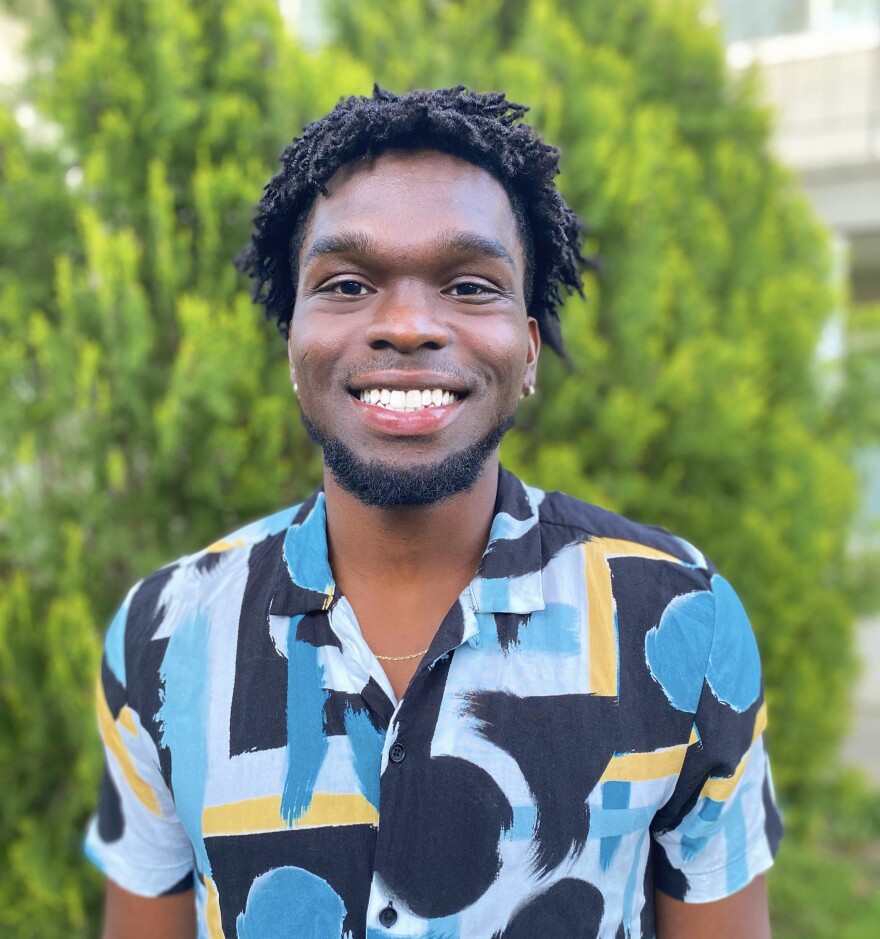When Kyle Parker relocated from Chicago's South Side to attend college in Grinnell, Iowa in 2016, he encountered a problem he never anticipated.
Parker, who had always had his hair cut at a Black barbershop, lacked access to a barber who could trim his coarse hair. The closest city was two hours away, and he had no car.
"I couldn't even find any, you know, Black hair care products, any brushes or anything like that, to even just keep it up myself," he said.
Parker quickly realized he didn't feel like himself and had less confidence in social situations and internship interviews.
"After three years of dealing with that," he explained, “I really began to see that if you look your best, you feel your best, you perform your best."
During his time at Grinnell College, and later, after transferring to the University of Rochester, a business idea was forming in Parker's mind. ClipDart was originally going to work like a delivery or ridesharing service does, where users download an app, and get immediate access to a barber.
But he would soon stumble upon another unforeseen problem. The launch date for the app was set for March 15, 2020. What happened next, he could never have predicted. It was the very week the Covid-19 pandemic began in the U.S.
"Nobody wanted anybody in their homes," Parker recalled. " And barbers and stylists didn't want to go into people's homes so it completely, you know, just ruined the app."

That turned out to be a blessing in disguise. It got Parker thinking about people who don't have a phone or internet connection. So, he transitioned to a business-to-business model in which ClipDart partners with organizations like universities, homeless shelters, or senior centers, where people need better access to haircare.
The partnering organization typically pays the fees to get barbers to their site, so customers can get the haircare service for free. A non-profit arm of ClipDart provides the service free of charge for severely economically distressed communities.
"Now we can answer our mission in a much better way, because we're helping a group of people, rather than just going to a single person through an app like Uber or DoorDash does," Parker explained.
Today, ClipDart operates in 26 states with more than 100 organizational partners, including the University of Rochester. They are the only local participating organization, but Parker hopes to add more.
While ClipDart advertises haircuts as its main attraction, Parker thinks the social-emotional connection people often have with their haircare professionals is even more important.
"It's really a confidant," he said. "It's a person that you can go to with your problems, and they'll be vulnerable, just like you'll be vulnerable. Especially when you're within struggling communities, this can't get any more important."
He says he knows of people who found the courage to apply for a job or ask for a date after getting a haircut and overcoming some initial shyness.
"It was because they just didn't feel like they looked like themselves. Now, they got that haircut, they asked that girl out, they asked the guy out, and not changed their entire life."
ClipDart barbers and stylists are scheduled to provide free haircuts for underrepresented students as part of Meliora Weekend at the University of Rochester from 9:00 am to 3:00 pm on Sept. 26 in the May Room at Wilson Commons.



